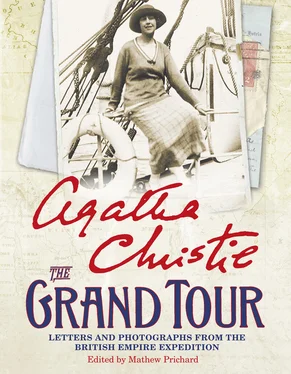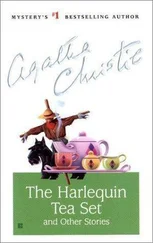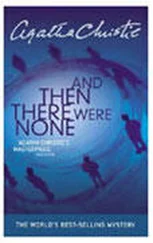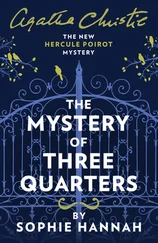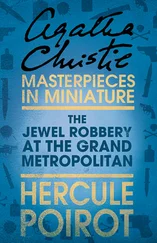I always think that anybody who ventures to write about Agatha Christie should not bypass her work, and Nima would have agreed. I therefore have to tell you that shortly after the British Empire Mission returned home, Nima published The Man in the Brown Suit, an adventure story; and unusually for her, she included a direct portrayal of a real acquaintance – an impersonation of Belcher called Sir Eustace Pedler. Until Belcher objected, he was going to be murdered, but Nima gave him a title (‘he will like that,’ said Archie). As I never reveal the plots of Nima’s stories, all I will say beyond that is that Sir Eustace plays a prominent role! Nima very rarely used real individuals as the basis for her characters, indeed I’m not sure this wasn’t the only instance; and she didn’t really think it worked. Thus, however, were the many varied characters and events of the Grand Tour given fictional representation. Interestingly, there are those who think that Anne Beddingfield has a marked resemblance to the young and adventurous Agatha too…
Finally, I have tried to interfere with the flow and content of the letters as little as possible. We should all remember that the letters were written 90 years ago in a different social era, and inevitably there is also some repetition, as well as occasional inconsistencies in grammar and punctuation. Many of the captions to the photographs are Nima’s own own from her albums.
MATHEW PRICHARD
20 January 2012
PREFACE
I had written three books, was happily married, and my heart’s desire was to live in the country.
Both Archie and Patrick Spence – a friend of ours who also worked at Goldstein’s – were getting rather pessimistic about their jobs: the prospects as promised or hinted at did not seem tomaterialise. They were given certain directorships, butthe director ships were always of hazardous companies – sometimes on the brink of bankruptcy. Spence once said, ‘I think these people are a lot of ruddy crooks. All quite legal, you know. Still, I don’t like it, do you?’
Archie said that he thought that some of it was not very reputable. ‘I rather wish,’ he said thoughtfully, ‘I could make a change.’ He liked City life and had an aptitude for it, but as time went on he was less and less keen on his employers.
And then something completely unforeseen came up.
Archie had a friend who had been a master at Clifton – a Major Belcher. Major Belcher was a character. He was a man with terrific powers of bluff. He had, according to his own story, bluffed himself into the position of Controller of Potatoes during the war. How much of Belcher’s stories was invented and how much true, we never knew, but anyway he made a good story of this one. He had been a man of forty or fifty odd when the war broke out, and though he was offered a stay-at-home job in the War Office he did not care for it much. Anyway, when dining with a V.I.P. one night, the conversation fell on potatoes, which were really a great problem in the 1914–18 war. As far as I can remember, they vanished quite soon. At the hospital, I know, we never had them. Whether the shortage was entirely due to Belcher’s control of them I don’t know, but I should not be surprised to hear it.
‘This pompous old fool who was talking to me,’ said Belcher, ‘said the potato position was going to be serious, very serious indeed. I told him that something had to be done about it – too many people messing about. Somebody had got to take the whole thing over – one man to take control. Well, he agreed with me. “But mind you,”’ I said, “he’d have to be paid pretty highly. No good giving a mingy salary to a man and expecting to get one who’s any good – you’ve got to have someone who’s the tops. You ought to give him at least—”’ and here he mentioned a sum of several thousands of pounds. ‘That’s very high,’ said the V.I.P. ‘You’ve got to get a good man,’ said Belcher. ‘Mind you, if you offered it to me, I wouldn’t take it on myself, at that price.’
That was the operative sentence. A few days later Belcher was begged, on his own valuation, to accept such a sum, and control potatoes.
‘What did you know about potatoes?’ I asked him.
‘I didn’t know a thing,’ said Belcher. ‘But I wasn’t going to let on. I mean, you can do anything – you’ve only got to get a man as second-in-command who knows a bit about it, and read it up a bit, and there you are!’ He was a man with a wonderful capacity for impressing people. He had a great belief in his own powers of organisation – and it was sometimes a long time before anyone found out the havoc he was causing. The truth is that there never was a man less able to organise. His idea, like that of many politicians, was first to disrupt the entire industry, or whatever it might be, and having thrown it into chaos, to reassemble it, as Omar Khayyam might have said, ‘nearer to the heart’s desire’. The trouble was that, when it came to reorganising, Belcher was no good. But people seldom discovered that until too late.
At some period of his career he went to New Zealand, where he so impressed the governors of a school with his plans for reorganisation that they rushed to engage him as headmaster. About a year later he was offered an enormous sum of money to give up the job – not because of any disgraceful conduct, but solely because of the muddle he had introduced, the hatred which he aroused in others, and his own pleasure in what he called ‘a forward-looking, up-to-date, progressive administration’. As I say, he was a character. Sometimes you hated him, sometimes you were quite fond of him.
Belcher came to dinner with us one night, being out of the potato job, and explained what he was about to do next. ‘You know this Empire Exhibition we’re having in eighteen months’ time? Well, the thing has got to be properly organised. The Dominions have got to be alerted, to stand on their toes and to co-operate in the whole thing. I’m going on a mission – the British Empire Mission – going round the world, starting in January.’ He went on to detail his schemes. ‘What I want,’ he said, ‘is someone to come with me as financial adviser. What about you, Archie? You’ve always had a good head on your shoulders. You were Head of the School at Clift on, you’ve had all this experience in the City. You’re just the man I want.’
‘I couldn’t leave my job,’ said Archie.
‘Why not? Put it to your boss properly – point out it will widen your experience and all that. He’ll keep the job open for you, I expect.’
Archie said he doubted if Mr Goldstein would do anything of the kind.
‘Well, think it over, my boy. I’d like to have you. Agatha could come too, of course. She likes travelling, doesn’t she?’
‘Yes,’ I said – a monosyllable of understatement.
‘I’ll tell you what the itinerary is. We go first to South Africa. You and me, and a secretary, of course. With us would be going the Hyams. I don’t know if you know Hyam – he’s a potato king from East Anglia. A very sound fellow. He’s a great friend of mine. He’d bring his wife and daughter. They’d only go as far as South Africa. Hyam can’t afford to come further because he has got too many business deals on here. After that we push on to Australia; and after Australia New Zealand. I’m going to take a bit of time off in New Zealand – I’ve got a lot of friends out there; I like the country. We’d have, perhaps, a month’s holiday. You could go on to Hawaii, if you liked, Honolulu.’
‘Honolulu,’ I breathed. It sounded like the kind of phantasy you had in dreams.
‘Then on to Canada, and so home. It would take about nine to ten months. What about it?’
We realised at last that he really meant it. We went into the thing fairly carefully. Archie’s expenses would, of course, all be paid, and outside that he would be offered a fee of £1000. If I accompanied the party practically all my travelling costs would be paid, since I would accompany Archie as his wife, and free transport was being given on ships and on the national railways of the various countries.
Читать дальше
